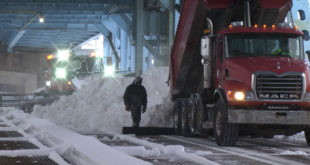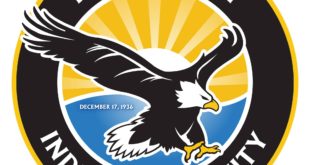The Michigan Department of Natural Resources will offer its latest “Wildlife Through Forestry” forum, which will showcase preliminary results from the DNR’s ongoing Upper Peninsula predator-prey study, May 8 at the Ottawa Sportsmen’s Club in Baraga County.
“This is the third forum in our highly-successful series, which began earlier this year, in the western Upper Peninsula” said John Pepin, DNR deputy public information officer. “These sessions link wildlife topics to the numerous ways habitat may be developed and enhanced for a range of species on private lands.”
Peninsula” said John Pepin, DNR deputy public information officer. “These sessions link wildlife topics to the numerous ways habitat may be developed and enhanced for a range of species on private lands.”
The forum will be from 7-9 p.m. EDT, May 8 at the Ottawa Sportsmen’s Club conference room/banquette hall, located along M-38, approximately 7 miles west of Baraga. The club is sponsoring the session.
With funding from a Natural Resources Conservation Service grant, the DNR has been offering “Wildlife Through Forestry” forums over the past few months.
Each of these forums has included a presentation on an interesting and important wildlife-related topic, with additional information provided to private landowners on the value of a resource management plan.
The long-term predator-prey study is currently ongoing in Ontonagon and Houghton counties, in the high snowfall zone of the U.P. Previous work has been done in low and medium snowfall areas of the region.
This research has been a collaborative effort between the DNR, Mississippi State University and Safari Club International. The project aims to provide a better understanding of the major factors affecting white-tailed deer survival.
Factors potentially affecting deer include habitat conditions, winter weather and predation. Understanding the role and interaction of these factors will aid management of the deer herd.
Two members of the research team, Nick Fowler and Todd Kautz, both doctoral candidates at Mississippi State, will describe the study and review some of its preliminary findings.
“This forum is a great opportunity for the public to find out more about what biologists are learning,” Pepin said.
A panel of resource professionals will be on hand to discuss the development, preparation and implementation of resource management plans.
The DNR “Wildlife Through Forestry” steering committee planned specific goals in holding these forums in the western U.P.
“We want to get folks fired up about sound resource management so that they establish a family legacy with their forest ownership,” Willis said. “We want to show folks the importance of working closely with a resource professional to accomplish their goals and objectives for ownership. We also want folks to have a good time getting together to discuss topics of interest to us all.”
A previous forum on the predator-prey study was held in Ontonagon and a session on black bears was offered earlier this month in Houghton County. Additional forums, to be held this summer, are currently being planned.
More than 150 professional foresters and 20 wildlife biologists develop Forest Stewardship Plans for forest landowners in Michigan. For information about these plans or the Commercial Forest Program, contact Gary Willis, DNR Service Forester, 427 U.S. 41 North, Baraga, Michigan, 49908; 906-353-6651, ext. 122 or willisg2@michigan.gov.
The Iron-Baraga Conservation District has a forester on staff available for a free site visit to private landowner properties. Roger Jaworski can discuss landowner wildlife habitat and forestry goals and help decide if there are financial assistance programs that can provide cost sharing for resource management plan preparation and implementation. Contact Jaworski at 906-875-3765 orfap.iron.baraga@macd.org.
For additional information on the Predator-Prey research project, visit the project’s webpage at: http://fwrc.msstate.edu/carnivore/predatorprey/.
 Keweenaw Report Your Source for Local News and Sports
Keweenaw Report Your Source for Local News and Sports





